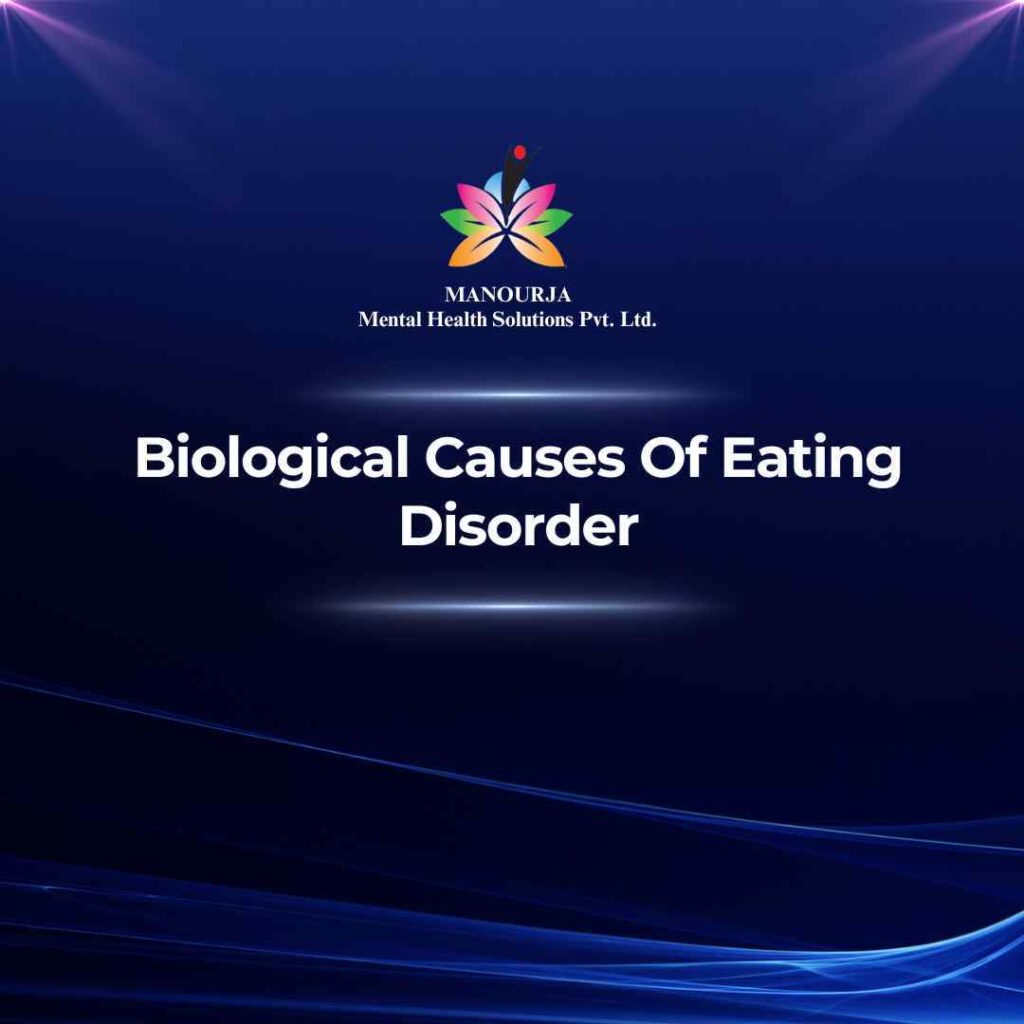Biological Causes of Eating Disorder

Eating disorders are complex conditions that involve a variety of contributing factors, including genetic, neurobiological, and environmental elements. The biological causes of eating disorders are particularly important as they highlight how deeply these disorders are rooted in physiological processes. Here’s an overview of the primary biological causes associated with eating disorders:
Genetic Factors
Research indicates that genetics play a significant role in the susceptibility to eating disorders. Studies involving twins, families, and adoption scenarios suggest a heritable component, especially for disorders like anorexia nervosa and bulimia nervosa. Specific genes associated with regulation of eating behaviors, body weight, and psychological traits like anxiety and obsessionally might contribute to the development of these disorders.
Neurobiological Factors
- Brain Structure and Function: Imaging studies have shown that people with eating disorders often have alterations in the structure and function of the brain areas involved in processing rewards, regulating emotions, and controlling impulses. For example, changes in the activity of the hypothalamus, which regulates appetite, might influence eating behaviors.
- Neurotransmitters: Imbalances in neurotransmitters, the brain’s chemical messengers, are commonly observed in individuals with eating disorders. Serotonin and dopamine, which are involved in mood regulation and reward processing, respectively, are particularly implicated. Alterations in these systems can affect mood, impulse control, and the body’s perception and response to food and stress.
Hormonal Imbalances
Hormones that regulate appetite, metabolism, and stress responses can also contribute to the development of eating disorders:
- Ghrelin and Leptin: These hormones regulate hunger and satiety. Disruptions or imbalances in these hormones can lead to abnormal eating behaviors.
- Cortisol: Often referred to as the “stress hormone,” elevated cortisol levels are common in individuals with eating disorders, particularly those who are under chronic stress or who engage in binge-purging behaviors.
Metabolic Factors
Differences in metabolic responses to food intake and energy expenditure may predispose individuals to develop eating disorders. Metabolic rates can influence how the body processes nutrients and maintains energy balance, factors that can be disrupted in eating disorders.
Set Point Theory
This theory suggests that each body has a genetically determined set weight range, and the body will defend this set point through changes in metabolism and energy expenditure. Difficulty in maintaining body weight at this set point might influence disordered eating behaviors as individuals attempt to alter their weight through restrictive diets, excessive exercise, or purging.
Understanding the biological underpinnings of eating disorders helps in developing targeted treatments that address these physiological aspects, such as medications that balance neurotransmitter levels or interventions that correct hormonal imbalances. Moreover, acknowledging the biological causes emphasizes that eating disorders are not merely a choice or a lifestyle decision, but serious mental health conditions that require comprehensive medical and psychological intervention.
At MANOURJA, we believe in the transformative power of counseling. Our experienced therapists offer a safe and supportive space where you can explore your thoughts, emotions, and challenges. Through personalized counselling sessions, we’ll work together to develop coping strategies, build resilience, and achieve lasting positive change. Discover the path to a healthier, happier you with MANOURJA counselling services.
MANOURJA Rehabilitation Services
At MANOURJA, we’re dedicated to helping you in rebuild your life, after difficult times. Our rehabilitation services focus on understanding what you need to move forward, whether you’re recovering from addiction, trauma, or any psychological – social challenges. We create personalized plans, that are all about helping you, regain your strength and find hope again. With a caring team by your side, you’ll have the support to make real progress and take steps toward a brighter, healthier future.
